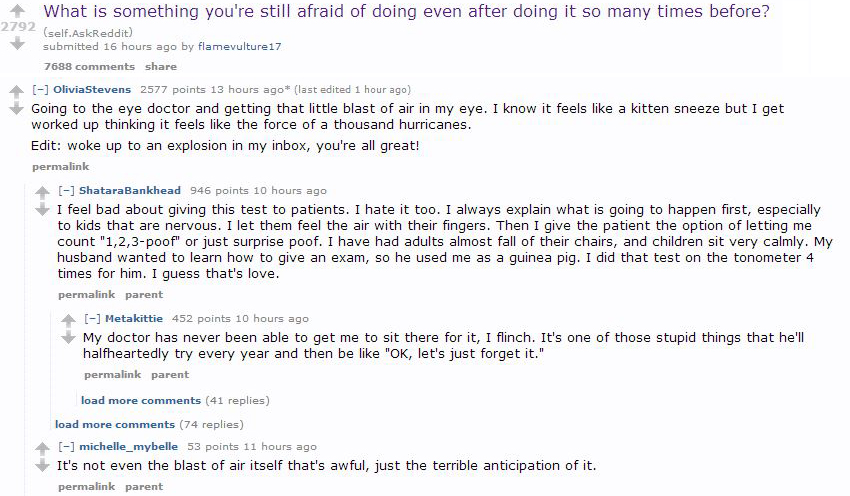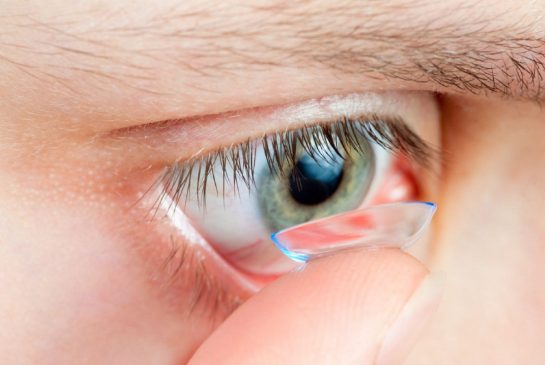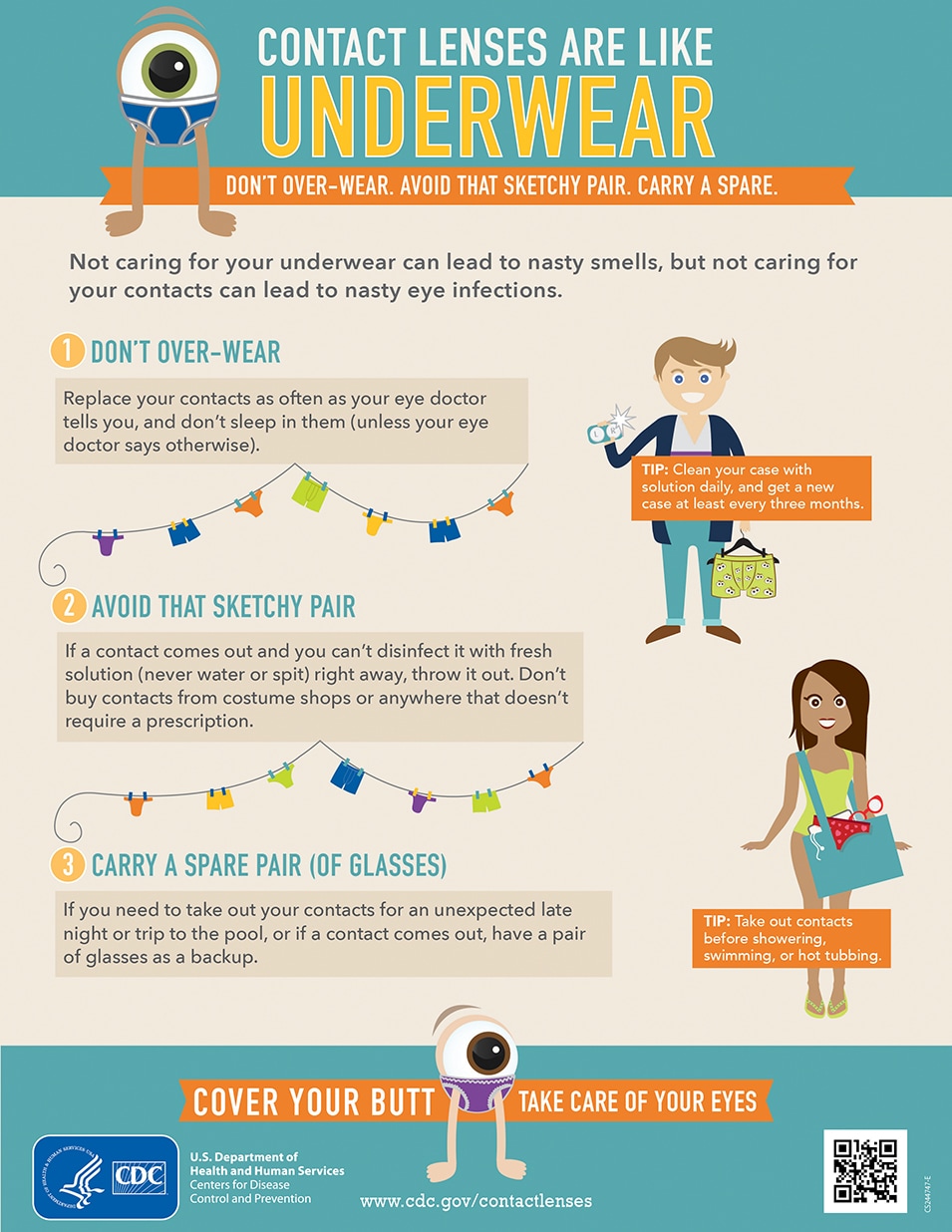Air Puff Test – What Is It For?
What is the purpose of that awful air puff? If you hate doing that test, you’re definitely not alone!
The air puff test is called non-contact tonometry (NCT) and it measures the pressure inside your eyes. The machine shoots a small puff of air into your eye, and it calculates the pressure inside your eye based on how the air bounces back.
If you can’t handle that test, there are alternatives such as Goldmann tonometry (the blue light test). This involves a yellow drop which glows under blue light. The doctor will view your eyes very closely with a prism, and then the pressure can be calculated based on how the light is bent. This method is also painless, and even more accurate than the NCT.
Your eyes are filled with fluid, and if there is something causing a fluid buildup, the increased pressure can cause damage to the structures of your eye, resulting in vision loss. High pressures can be the first sign of glaucoma, or the result of other things such as injury, infection, or a tumour around the eye. There is usually no pain or symptoms with high eye pressure. It is like having high blood pressure – you won’t feel it unless it is at an unsafe level. That is why it’s important for an optometrist to do this test and measure your pressure every year. It’s a little uncomfortable but it’s over faster than a pressure cuff squeezing your arm! 🙂




